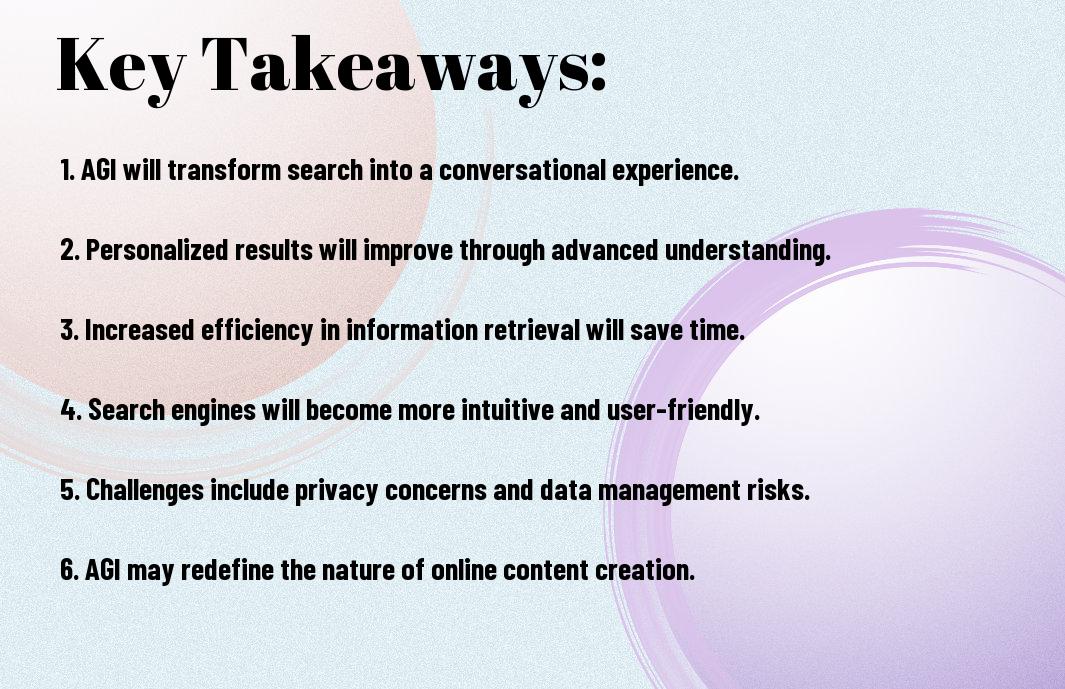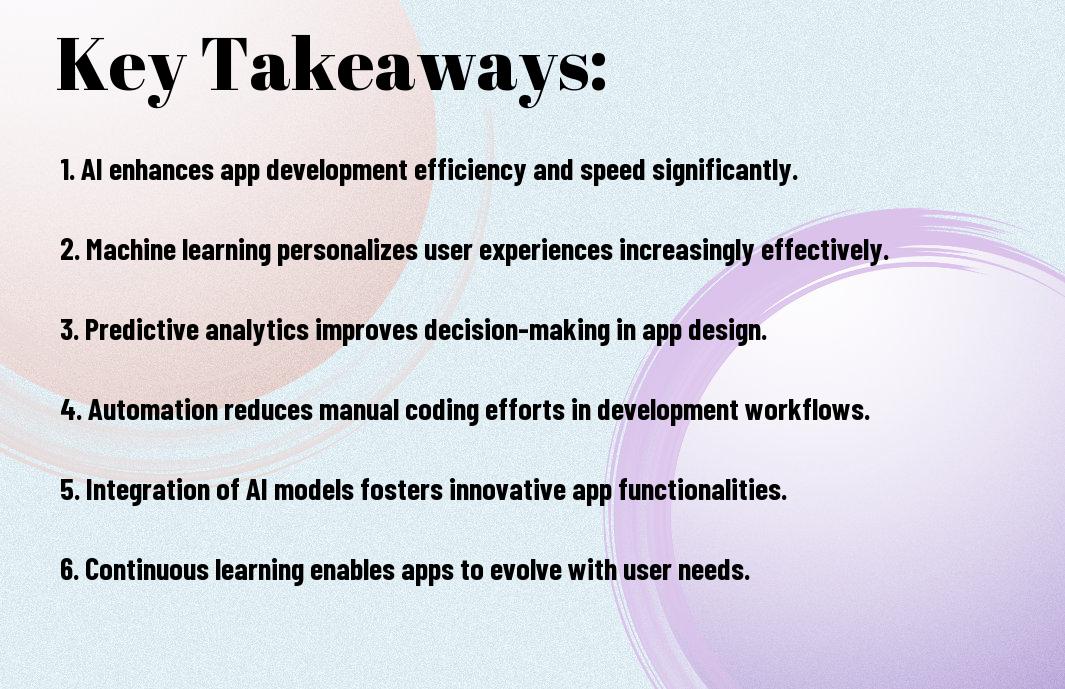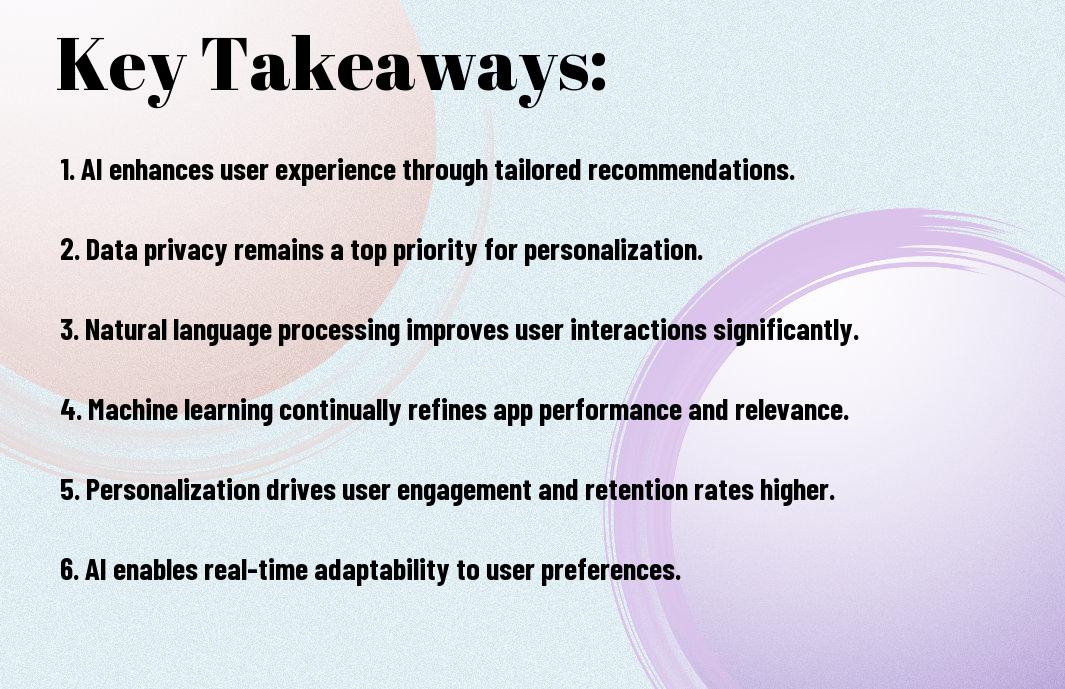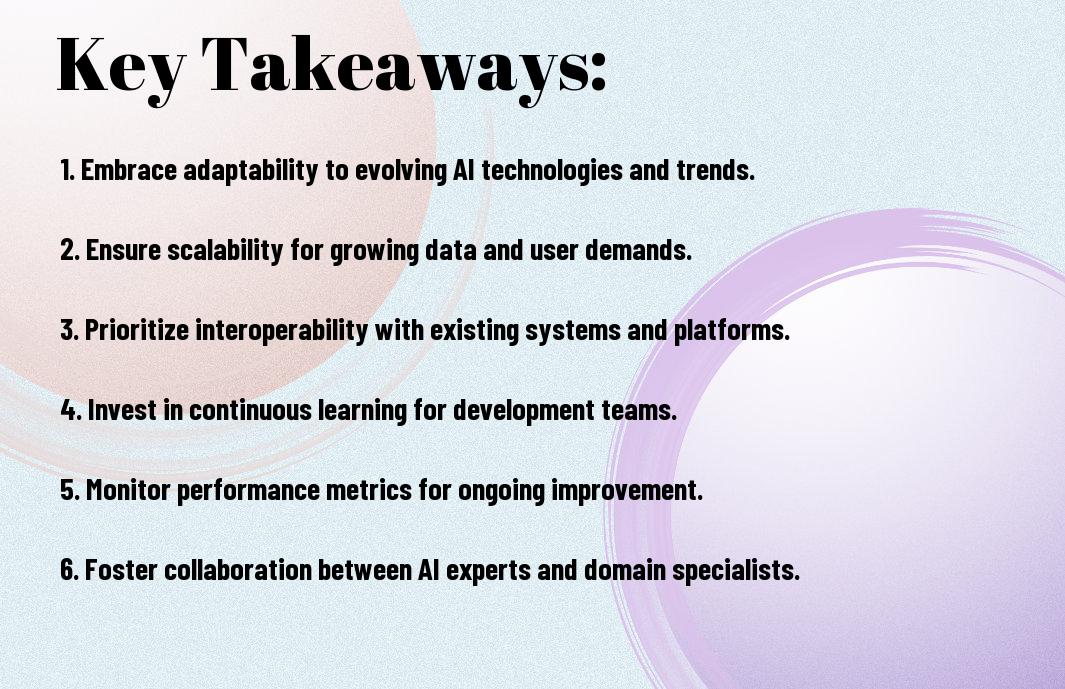As you consider the future of your business, you may wonder who will be leading the charge. With the rise of artificial intelligence, you are likely to see a significant change in the way your company operates. According to a report from AI agents represent the next big shift in the workforce, your management style may soon be augmented or even replaced by AI agents, forcing you to rethink your leadership strategy and consider what this means for your organization’s success.

Key Takeaways:
- AI agents are increasingly being considered as potential leaders in businesses, with their ability to process vast amounts of data and make informed decisions quickly, potentially making them more efficient than human managers in certain aspects of business operations.
- The role of human managers will likely shift to focus on high-level strategic decision-making, creativity, and emotional intelligence, as these are areas where humans currently have an edge over AI agents, allowing them to complement each other in a hybrid leadership model.
- The future of business leadership may involve a collaborative approach, where AI agents and human managers work together to leverage their respective strengths, with AI handling repetitive and data-intensive tasks, and humans providing the vision, empathy, and innovation needed to drive long-term success.
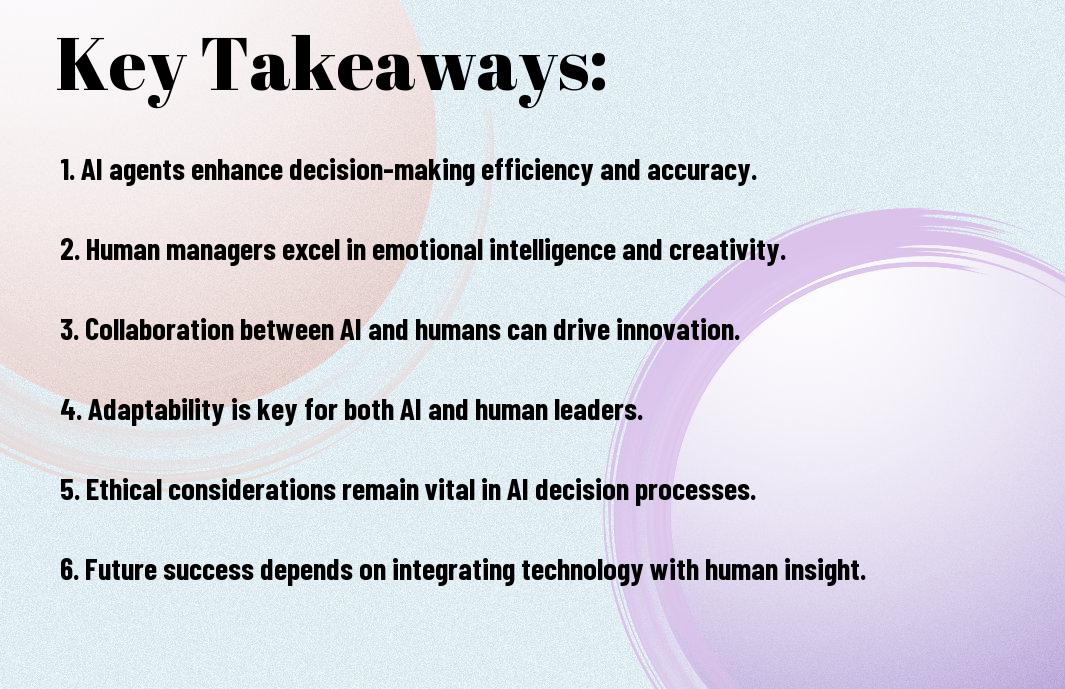
The Current Leadership Landscape
The business world is on the cusp of a significant transformation, and you are likely wondering what the future holds for leadership. As you consider the role of AI agents and human managers, it’s important to understand the current state of leadership.
Traditional Management Models
About to be disrupted, traditional management models have been the norm for decades, and you may be familiar with their hierarchical structures and decision-making processes. You will notice that these models often rely on human intuition and experience.
Rise of AI-Powered Decision Making
Between the lines of innovation and efficiency, AI-powered decision making is emerging as a game-changer, and you are probably interested in learning more about its potential. You will find that AI agents can analyze vast amounts of data, providing insights that inform strategic decisions.
Current advancements in AI technology are enabling businesses to make data-driven decisions, and you can leverage this trend to stay ahead of the curve. As you explore the rise of AI-powered decision making, you will discover that it can enhance your decision-making capabilities, freeing you to focus on high-level strategy and innovation, and ultimately driving your business forward.
AI Agents as Business Leaders
Some experts predict that AI agents will soon be leading businesses, and How AI agents could find their way into most businesses— and change everything is an interesting read on this topic. As you consider the potential of AI agents, you’ll want to explore their capabilities.
Algorithmic Decision Capabilities
Agents with advanced algorithmic capabilities can analyze vast amounts of data, enabling them to make informed decisions that drive your business forward. You’ll be interested to see how these agents can optimize operations and improve efficiency.
Data Processing Advantages
One significant benefit of AI agents is their ability to process large datasets quickly and accurately, giving you a competitive edge in the market. You’ll appreciate the speed and precision they bring to your business operations.
Processing large amounts of data is a significant challenge for many businesses, but AI agents can handle this task with ease, freeing up your time to focus on strategy and growth. You’ll find that AI agents can help you make data-driven decisions, identify trends, and optimize your operations for maximum efficiency.
Human Management Strengths
Not surprisingly, human managers possess unique strengths that make them effective leaders. You will find that their abilities to understand and connect with people are unparalleled, allowing them to build strong relationships and motivate your team.
Emotional Intelligence
Prior to making any decisions, you consider the emotional impact on your team, and this is where human managers excel. You can empathize with your employees, providing support and guidance when needed, which fosters a positive work environment.
Creative Problem-Solving
By leveraging their experience and intuition, human managers can approach problems from unique angles, finding innovative solutions that might elude AI agents. You will find that their ability to think outside the box is invaluable in navigating complex business challenges.
And as you probe deeper into creative problem-solving, you will discover that human managers can adapt quickly to changing circumstances, making them more agile and responsive to your business needs. You can trust their judgment, knowing that they will make decisions that align with your company’s values and goals.
Hybrid Leadership Models
Unlike traditional leadership structures, hybrid models combine the strengths of AI agents and human managers to create a more effective leadership approach, allowing you to leverage the benefits of both worlds and make informed decisions for your business.
Collaborative AI-Human Systems
Structures that integrate AI and human capabilities enable you to tap into the unique strengths of each, creating a more comprehensive and efficient leadership system that supports your business goals and objectives.
Role Distribution
Beside the benefits of hybrid models, you will need to consider how to distribute roles and responsibilities between AI agents and human managers, ensuring that each plays to their strengths and contributes to the success of your organization.
Consequently, as you explore role distribution, you will find that AI agents excel in tasks that require data analysis and processing, while human managers bring emotional intelligence and creativity to the table, allowing you to create a balanced and effective leadership team that drives your business forward.
Future Workplace Dynamics
Your business is on the cusp of a revolution, as AI agents are poised to disrupt traditional management structures, learn more about How AI Agents Will Disrupt Small And Mid-Sized Business In 2023 to stay ahead.
Adaptation Requirements
Any organization looking to thrive in this new landscape must be prepared to evolve, and you will need to assess your current infrastructure and processes to determine what changes are necessary to accommodate AI agents.
Skills Evolution
Adaptation to the changing workplace dynamics will require you to develop new skills, such as understanding AI-driven data analysis and decision-making, to effectively collaborate with AI agents.
Indeed, as AI agents take on more managerial responsibilities, you will need to focus on developing skills that complement their capabilities, such as creativity, empathy, and strategic thinking, to add value to your organization and drive business success.
Ethical Considerations
To ensure responsible AI development, you must consider the implications of AI agents in business leadership, weighing the benefits against potential drawbacks, and examining how they will impact your organization and society as a whole.
Decision Accountability
Ethically, you will need to determine who is accountable for decisions made by AI agents, and how you will establish a framework for responsibility and transparency in your decision-making processes.
Human-Centric Values
Beside the technical aspects, you should prioritize human-centric values, such as empathy and compassion, when integrating AI agents into your business, ensuring that your organization’s values and mission are preserved.
Even as AI agents become more prevalent, you will still need to consider the human element, ensuring that your business prioritizes the well-being and dignity of all stakeholders, including employees, customers, and the community, and that your AI systems are designed to support and augment human values, rather than replace them.
Conclusion
Taking this into account, you will likely see a shift in your business landscape as AI agents and human managers collaborate. You can expect your organization to become more efficient and productive. Your role will be to oversee and make strategic decisions, while AI handles routine tasks. As you move forward, your ability to adapt and work with AI will be key to your success, and your business will thrive in a future where human and artificial intelligence coexist.
FAQ
Q: What are AI agents and how do they differ from human managers in a business setting?
A: AI agents are software programs designed to perform specific tasks, such as data analysis, decision-making, and problem-solving, using artificial intelligence and machine learning algorithms. In contrast, human managers are individuals with emotional intelligence, social skills, and experience, who lead and manage teams to achieve business goals. While AI agents can process vast amounts of data quickly and accurately, human managers bring creativity, empathy, and strategic thinking to the table, making them better suited for tasks that require complex decision-making and human interaction.
Q: Can AI agents replace human managers in leading businesses, or do they have limitations?
A: While AI agents have made significant advancements in recent years, they still have limitations when it comes to leading businesses. AI agents lack the emotional intelligence, social skills, and creativity that human managers possess, which are necessary for building strong relationships with employees, customers, and stakeholders. Additionally, AI agents may struggle with complex decision-making, nuanced communication, and adapting to changing circumstances, making human managers still necessary for strategic leadership and innovation.
Q: What are the benefits of using AI agents in business management, and how can they support human managers?
A: AI agents can bring numerous benefits to business management, such as increased efficiency, accuracy, and speed in data analysis and processing. They can also help automate routine tasks, freeing up human managers to focus on strategic decision-making and high-level thinking. Furthermore, AI agents can provide valuable insights and predictions, enabling human managers to make more informed decisions. By combining the strengths of AI agents and human managers, businesses can create a more efficient, effective, and innovative management system.
Q: How will the role of human managers evolve as AI agents become more prevalent in business management?
A: As AI agents become more integrated into business management, the role of human managers will shift from focusing on routine tasks and data analysis to more strategic and creative responsibilities. Human managers will need to develop skills that complement AI agents, such as emotional intelligence, creativity, and complex problem-solving. They will also need to focus on building strong relationships with employees, customers, and stakeholders, and driving innovation and growth through strategic decision-making. By leveraging the strengths of both AI agents and human managers, businesses can create a more dynamic and effective management system.
Q: What does the future hold for AI agents and human managers in business leadership, and how will they work together to drive success?
A: The future of business leadership will likely involve a collaboration between AI agents and human managers, with each playing to their respective strengths. AI agents will continue to improve and become more integrated into business management, providing valuable insights and supporting human managers in their decision-making. Human managers will need to adapt and develop new skills to work effectively with AI agents, focusing on strategic leadership, innovation, and building strong relationships. By working together, AI agents and human managers can drive business success, improve efficiency, and create a more dynamic and effective management system that leverages the best of both worlds.


